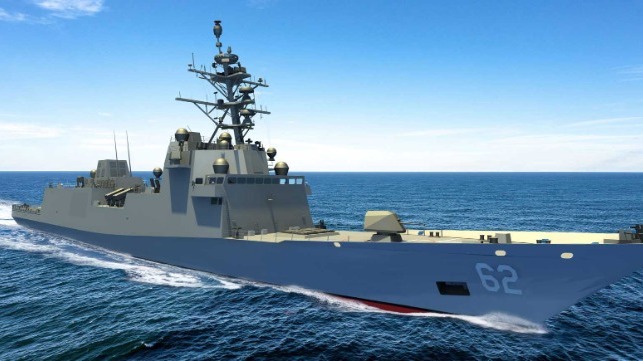Report: U.S. Navy's New Frigate May Deliver Three Years Late

The U.S. Navy's future Constellation-class frigate program is on track to run as much as three years late, according to USNI. Weighed down by workforce recruitment issues and design maturity challenges, the program may not deliver its first hull until 2029, according to a formal program review document.
In 2020, the Navy selected a design based on the proven and popular French/Italian FREMM frigate to serve as its future guided missile frigate platform. The fast-track plan called for the first hull, USS Constellation, to deliver in 2026.
However, the Wisconsin-based builder of the Constellation has experienced challenges in recruiting and retaining workers. The U.S. Navy has provided direct assistance in the form of a $50 million grant for retention bonuses, payable to yard employees who stayed for a year or more. Those workforce challenges continue, according to USNI, and extend to the white-collar workforce as well. (Most American shipbuilders and shipbuilding supply chain companies have reported similar staffing problems, and the Navy has experienced the same difficulties in filling its own ranks.)
The Constellation-class has also been affected by decisions to improve upon its survivability through design modifications. From the start, the frigate program was intended to leverage a proven hull design to reduce risk, a lesson taken from the Littoral Combat Ship Program. A source close to the Constellation-class program told USNI that the ship has changed so much that it now has approximately 15 percent design commonality with the FREMM. These design alterations have contributed to the delays.
The U.S. Navy may add a second "follow-on" shipyard to build additional Constellation-class frigates, in parallel with the initial shipyard. That second round of procurement is expected to begin once production at the first yard is under way, in order to leverage any lessons-learned from the first hull.
No comments:
Post a Comment